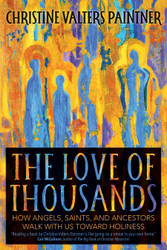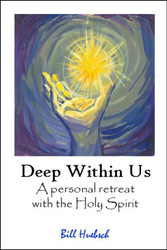"Angel: a spiritual being superior to humans in power and intelligence; also an attendant spirit or guardian."
We think of angels as winged creatures with supernatural powers that assist us when we are in danger. Where did that image of wings come from? how much contact is possible between humans and angels? Popular novelist Vinita Hampton Wright answers these and other questions in this illuminating and richly informative guide to angels in Judaism, Christianity, and Islam.
Explore the origin and nature of angels, where they dwell, what they do, and how they relate to humanity. Discover what the three Abrahamic faiths have to say about fallen angels (or demons), and see how doctrine and theology sometimes merge with legend and superstition. Included at the book's end is an encyclopedia of terms and names that will enlighten the study of angelic beings in the religions of the world.
Product Preview
| Format: | Paperback book |
|---|---|
| Product code: | PP4214 |
| Dimensions: | 5.37" x 8" |
| Length: | 192 pages |
| Publisher: |
Paraclete Press
|
| ISBN: | 9781557254214 |
| 1-2 copies | $16.71 each |
|---|---|
| 3-9 copies | $15.95 each |
| 10-49 copies | $15.19 each |
| 50-99 copies | $14.81 each |
| 100+ copies | $14.24 each |
Praise
This is the best book available on angels – a wildly popular topic that has long deserved the attention of a thoughtful and talented writer like Vinita Hampton Wright. She brings a poet’s skill, a scholar’s care, and a believer’s heart to the heavenly companions whose presence we might sense, but may know little about.
A critical study of . . . angels? Novelist and theologian Wright shows that such a thing is possible by placing the angelology of the three Abrahamic faiths alongside one another. Many of the stories from other faiths will preach right away. For example, some Jews believe that not only does each human have a guardian angel, but so does every single blade of grass. Muslims hold that an angel is responsible for our digestion, and that an angel is involved in the formation of each drop of rain. Much of the book is a running commentary on Thomas Aquinas's theology of angels—including his rationale for angels having some sort of body and so being unable to be in two places at the same time. (It was this discussion that led to the mock theological question of how many angels can balance on the head of a pin.) This book shows what Protestants lost by deemphasizing angels.
Christian Century










